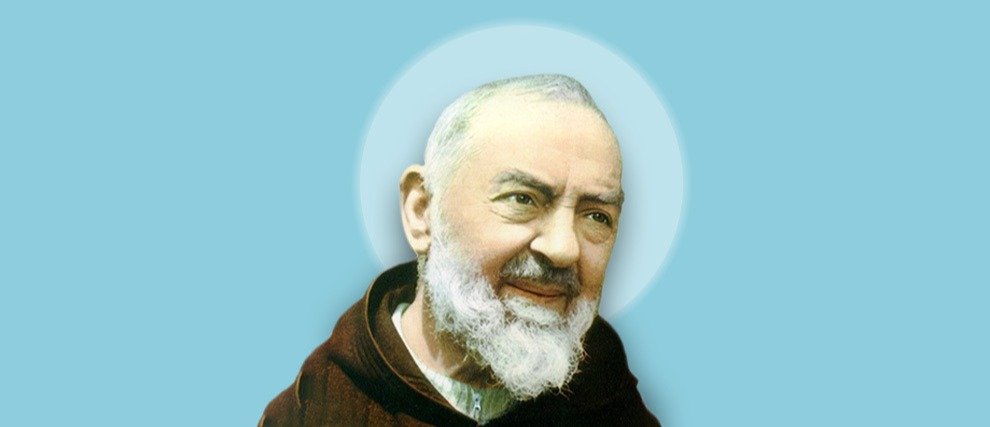Saint Ambrose of Milan
“Nature engendered the right of community; abuse created the right of property.”
Ambrose was born in Trier in 339 to a noble Christian family. He succeeded brilliantly in legal studies before being elected bishop while he was a simple catechumen. He closely studied the fathers of the Church and became an implacable theologian on the theses of the Council of Nicaea. A defender of Christian orthodoxy, he fought ardently against heresies and defended the rights of the Church as a skillful jurist against imperial power. He introduced Eastern authors such as Origen to the West, as well as liturgical singing. He is known to have converted Saint Augustine. His many works earn him the title of Doctor of the Church.
Biography of Ambrose of Milan
Born in Trier in 339, where his father was prefect of the Praetorium of Gaul, he became a senior Roman official at the age of 25, after studying literature and law in Rome. Born to a Christian family for several generations, he was not baptized and remained a catechumen until adulthood, as was the custom at the time. Her sister consecrated himself to God in adolescence. A perfect master of rhetoric and the Greek language, he was destined for a career as a lawyer. Under the protection of the Prefect of Italy after the death of his father, he first advised the latter, before being appointed Prefect Consular of Liguria and Emilia. This territory includes Turin, Milan, Genoa, and Bologna. Ambrose proved to be a skillful governor, and he was concerned about peace among the people he governed. Thus, already before being a bishop, he was keen to reconcile the Orthodox (that is to say the supporters of the Council of Nicaea) and the Arians. He had also defended Christianity against his cousin Symnaque, a fervent defender of the traditional Roman religion.
Upon the death of the bishop of Milan, a notorious Arian, the position was vacant and internal struggles began to determine his successor. Ambrose then intervened as a guardian of the maintenance of public order, since Milan was under his jurisdiction. Against all odds, and while he was not even baptized, he was elected bishop unanimously by the parties. Not belonging to the Nicene party or the Arian party, he seemed the perfect candidate who would be able to act as a diplomat. After hesitating for a while, he accepted the office, was baptized in the process and appointed a priest a week later.
From then on, he sold all his belongings, which he gave to the Church and to the poor, and devoted himself entirely to theological study and prayer. He studied the fathers of the Church and as a convinced Nicene, wrote to Athanasius of Alexandria, Basil of Caesarea and some other easterners, the first Western treatise on the Holy Spirit. He restored calm in the diocese of Milan between the Arian party and the Nicene, but dissensions quickly emerged with imperial power.
Symniac, prefect of Rome and supporter of traditional paganism, opposed Ambrose and after a fierce struggle, Ambrose won the victory that saw Symniac refused the idea of raising the altar of Victory in the Capitol. Later, as an uncompromising bishop, Ambrose prohibited Emperor Theodosius from entering his church for several months. The latter had massacred populations in Thessaloniki in 390. It took eight months and a public penance for the emperor to be accepted back into communion. “The emperor,” he said, “is only a member of the Church; he is not placed above it.” Finally, while the Arians still demanded a church in Milan, he remained intractable and despite the attempts of the imperial court to make the bishop vacillate, he remained in place, thanks in particular to the unwavering support of the population.
Under his episcopate, candidates for baptism were more and more numerous, and charitable works with the poor, the sick and prisoners were developing. He also intervened to obtain pardon for death row inmates. Very popular, many people from all walks of life flocked to him.
He died on Holy Saturday, April 4, 397 and was buried with the martyrs Gervais and Protais.
Works of Ambrose of Milan
Ambrose began an evolution of relations between the Church and the State in the West. While in the East, the structures of the young Church merged with those of the empire, and no one disputed the right of the emperor to intervene in the Church, but in the West, a separation emerged. The State must certainly protect religion, but theological issues and the affairs of the Church became governed by the ecclesiastical authorities.
Moreover, we owe the introduction into the Church of sacred music, and in particular of liturgical songs, to the Archbishop of Milan. While a disparity of songs was the norm within the immense Roman Empire according to local customs and popular traditions, Ambrose composed a kind of catalogue of songs that seemed worthy of being part of the liturgy, and thus unified the liturgical music. It is to him that are attributed the Splendor paterna gloriae, the Te Deum, to name a few, although this remains difficult to prove and still discussed today.
From the theological and philosophical point of view, we owe to Ambrose of Milan a translation of his contemporary Greek colleagues, in particular the group of Cappadocians: Basil of Caesarea, Gregory of Naziance, and Gregory of Nyssa. He also owed much to Origen and Philo of Alexandria with regard to biblical exegesis, tinged by these authors of philosophy.
He wrote several treatises on virginity, dogmatic treatises on the faith, the incarnation and the Holy Spirit, as well as many biblical comments. He also composed catechetisms on the sacraments, the mysteries and the explanation of the symbol of Nicaea.
Quotation from Ambrose of Milan
- “The light of mysteries penetrates better into those who do not expect it.” Wealth, which so often leads men down a wrong path, should be perceived less for its qualities than for the human misery it represents. These huge salons that you are so proud of are actually your shame. They are large enough to hold a crowd, and large enough also to blur the cry of the poor. The poor man screams at your door, and you don't pay attention. Your brother is there, naked, crying, and you yourself are embarrassed by the choice of the most beautiful carpet for your interior. ”
- “Everyone must maintain and defend their conviction.” Our friendships should not be based on self-interest, because friendship is a virtue and not a trade. “Respect your friend as an equal, do not be ashamed to precede your friend by the duty of the service rendered; friendship indeed ignores pride. This is indeed why the wise man says:” Do not be ashamed to defend a friend “. Do not miss a friend in need, do not abandon him, do not abandon him; for friendship is a help of life. Therefore, in it, we carry our burdens, as the apostle taught: he speaks to those whom the charity of this friendship has united. And indeed, if the prosperity of a friend helps his friends, why, also in the adversity of a friend, would the help of his friends not be at his disposal? Let us help with advice, let us make our efforts, let us sympathize with affection.” It is better to save souls for the Lord than to save treasures. He, who sent his apostles without money, did not need gold to build his Church. The Church possesses gold, not to make reserves, but to distribute it to those who need it. “If you have two shirts in your wardrobe, one comes back to you and the other to the one who doesn't.”
Prayers by Saint Ambrose
“Come, Lord Jesus, seek Your servant, seek the exhausted sheep. Come, Pastor! Leave the other ninety-nine and come and get the only one that is lost. Seek me because I seek You. Look for me, find me, welcome me, carry me. Please welcome whoever you find. Place on Your shoulders the one You have welcomed... A just burden is not a burden for You. Come, Lord, come, Lord, seek Your sheep, come Thyself! Come, and there will be salvation on earth and joy in heaven. Come, Greeting of the wandering, Rest of the weary, Life of those who die.”
“O my Lord Jesus, may You say of me: many sins will be forgiven him because he loved much! I admit, I owe You more than anyone else, and You have shown me greater mercy, since it was from the hubbub of the praetorium and the terrifying apparatus of the administration that I was called by You to the priesthood. That is why, Lord, I would fear to be ungrateful if I loved You less after being forgiven more. Amen.”
"Lord and God, we cannot desire better for others than we desire for ourselves. So I beg You; do not separate me by grace, after death, from those whom I have dearly loved on earth. Suffer, Lord, I beg You that where I am, others will be with me, so that up there I can rejoice in their presence, of which I was so early deprived on earth. I implore Thee, O sovereign God, hasten to welcome these beloved children into the bosom of life. In place of their short earthly life, give them eternal happiness. Amen.”
Praying with Hozana
Also discover other
, such as, or, but also retreats, or novenas.
